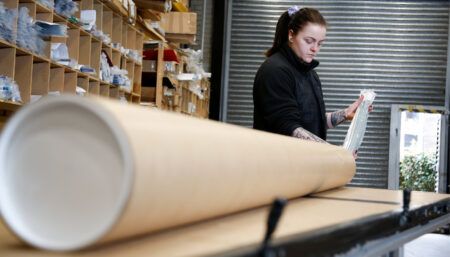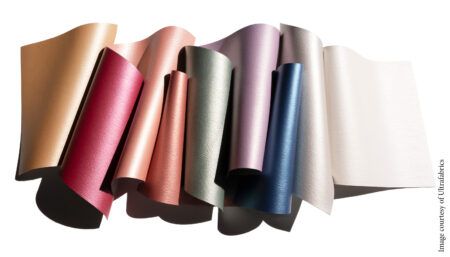ELeather’s head of sustainability, Lee Whitton, swapped driving for running his commute every day in April until Earth Day (22 April), as part of the company’s campaign to highlight what both businesses and consumers can do to tackle climate change.
Examples noted by the company ranged from driving less to using less plastic, eating less meat and choosing goods made with sustainable or recycled materials. ELeather reports that its engineered leather saves thousands of tonnes of leather waste from going to landfill.
Supporting Whitton’s effort, his employer pledged to donate two trees for every mile he ran to Forrest for Peterborough (a local planting project), with the total just shy of 500 trees.
“Since ELeather production began, we’ve recycled thousands of tonnes of leather waste to make a luxury material that can be used in a multitude of applications,” said Whitton. “Our materials are manufactured in a responsible way that comes at a fraction of the environmental cost, compared to leather. We’ve been working with many global brands for over 10 years to help reduce their environmental impact and now we want to make consumers aware of environmentally friendly material options available to them today.”
The company has two production facilities based in Peterborough, UK. Its materials have been used in public transport and aviation, including for seat upholstery in the cabins of four of the world’s largest airlines.
Since 2017 ELeather has also supplied its material to Nike for its Flyleather shoes, including staples such as the Air Force 1 and Cortez shoe models. Most recently, a sustainable pet accessories company, Project Blu, launched its ELeather collection in Europe and the USA.





